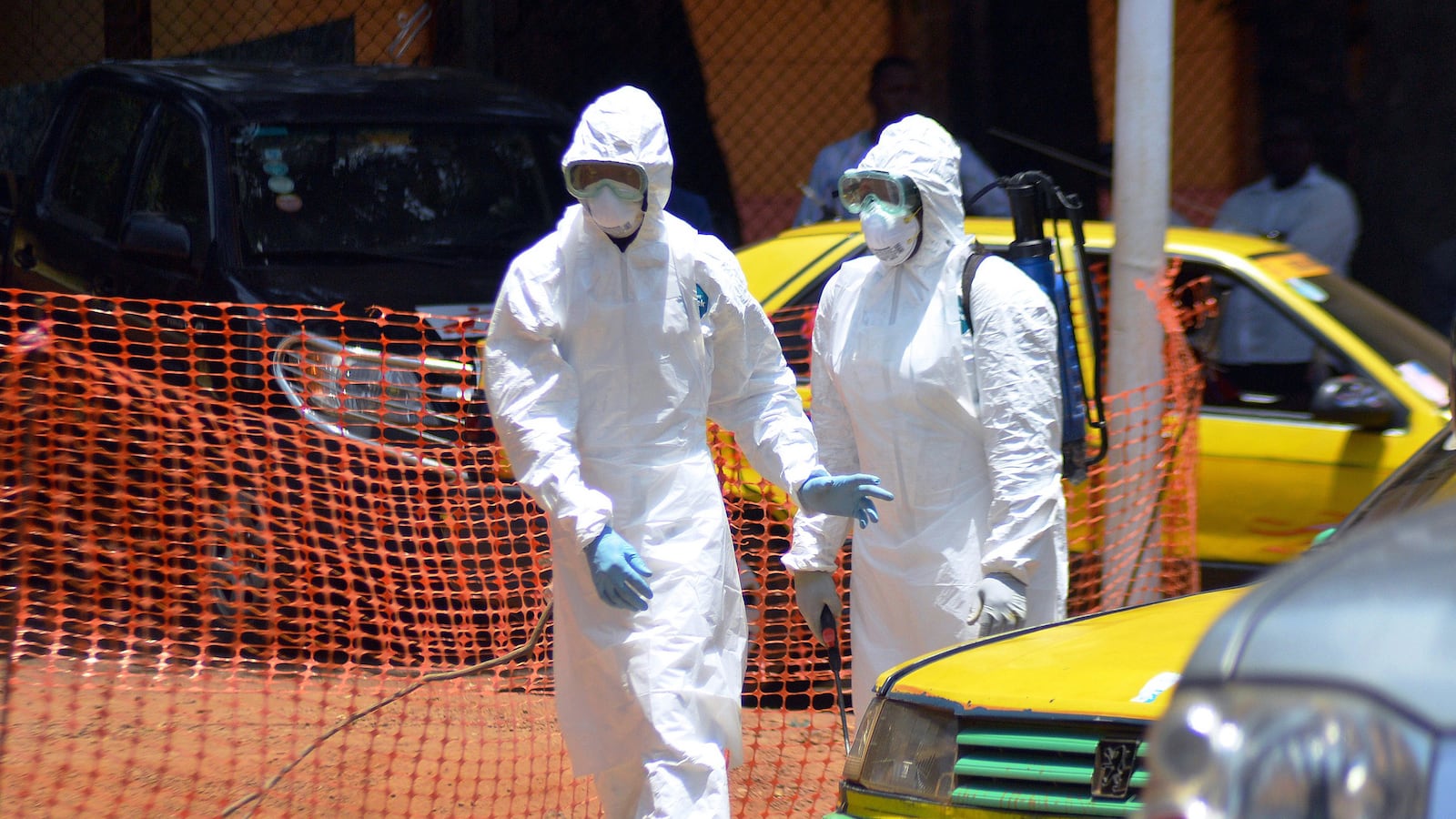At least two Americans are now infected with the Ebola virus, part of an “out of control” outbreak that the World Health Organization is calling the worst on record.
Late last week Dr. Kent Brantly, a 32-year-old family practice physician working in Liberia, became one of the first Americans to develop the virus. He is in isolation and being treated in Monrovia, in the Consolidated Case Management Center (CMC) he had managed prior to becoming ill.
According to Dr. Brantly’s employer, Samaritan’s Purse, a U.S.-based international relief organization that has operated in Liberia for 13 years, Dr. Brantly first felt ill July 23 but tested negative. Despite that negative result, he was placed into isolation—a provident decision. His symptoms soon worsened, and a repeat test on Friday night showed evidence of the virus.
Interviewed Sunday night by The Daily Beast, Ken Isaacs, vice president of programs and government relations for Samaritan’s Purse, said Dr. Brantly is “stable” for now but that he is “not out of the woods yet.” Isaacs, who wrote a piece last week for The New York Times about the Ebola crisis threatening several West African countries, said his organization is working closely with the Centers for Disease Control and Prevention, the National Institutes of Health, and Medicins sans Frontières (MSF, or Doctors Without Borders), among other groups, to determine whether experimental anti-viral treatments might be tried. There is no plan as of yet to evacuate Dr. Brantly to a Western facility, Isaacs said.
Isaacs also disclosed in the interview that a second American, Nancy Writebol, a volunteer with the relief organization SIM, also was diagnosed this weekend with Ebola infection and is in isolation. Over the weekend, a high-ranking Liberian physician and health official, Dr. Samuel Brisbane, died of the disease.
Writebol was in charge of the decontamination “wash-down” station that was used in the ELWA center, now a 20-bed unit in Monrovia dedicated to treating Ebola patients. According to Isaacs, her exposure may have occurred when a local worker in the unit contracted the disease but continued to work; this individual, whose name was not disclosed, died of Ebola over the weekend.
The wash-down station is part of a very formalized and well-planned infection control approach to decontaminating workers who have spent time with Ebola patients. Isaacs estimated that on one day, July 24, staff spent about 48 hours in direct care of the 16 patients with Ebola. Dr. Brantly probably saw each patient twice on a regular day. While caring for patients, clinical staff is heavily robed with gown and apron; three pairs of gloves; a hood; and goggles.
The break in technique may have occurred—though it is “completely speculative,” said Isaacs—in the wash-down area, where workers emerging from the isolation ward are sprayed with a chlorine solution, a cheap and effective killer of the virus. It is possible that the local employee worked in this area while contagious; in this area, staff members remove their gowns and gloves, and therefore are not fully garbed and protected. Additional information will be necessary to determine whether this theory plays out; if so, teams will need to rework the decontamination approach to assure there is no preventable moment of vulnerability.
Both Dr. Brantly and Writebol are married. Dr. Brantly also has children. According to Isaacs, the Brantly family, who live in Monrovia, had left a few days before Dr. Brantly’s likely exposure, returning to the United States for a family event. They are being monitored closely for early signs of infection but appear well. Most cases of Ebola occur after a brief one- to three-day incubation period.
Writebol’s husband also lives in Monrovia and is being watched closely for signs of Ebola, including frequent temperature checks and a review of any suggestive symptoms.
While the fate of the two stricken Americans is unknown, the current outbreak of Ebola, which is the largest and longest recorded, has maintained the previously observed high mortality rate of infection, with almost 700 people dead from the virus, many of them health-care workers.
In their fate, the two Americans and other unnamed health-care workers have followed the tragic example of the Italian physician Dr. Carlo Urbani, a World Health Organization infectious disease specialist who hurried to the region of the world where SARS was exploding 11 years ago, treated dozens of patients, and helped countless workers set up approaches for their own safety—then contracted SARS and died from it. Although less publicly appreciated than the deaths in the “line of fire” of policemen and firemen, health-care workers die of occupationally acquired exposures every year.
Given the ongoing risk to staff, Isaacs was asked whether Samaritan’s Purse, a Christian-based organization led by Franklin Graham, Billy Graham’s son and a controversial figure, would leave Liberia. His answer was clear: “We are in it for the long haul,” Isaacs said without hesitation. Not only that, but he stressed how critical it is that other groups run toward, not away, from possible danger. As he wrote in his essay for the Times, he is calling on governments and individuals to assist the West African nations overwhelmed by the disease. “Look,” he told The Daily Beast, “we are going to have to fight it here or else somewhere closer to us. Either way, we have to stop this spread.”





